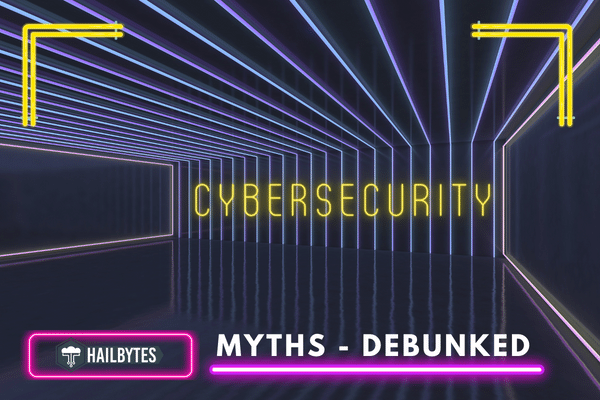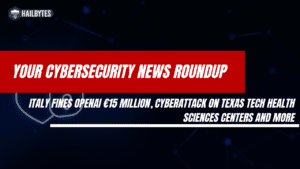Debunking Common Cybersecurity Myths
Table of Contents

Article Introduction
There are many misconceptions about cyber security at home and at the workplace. Some people think they just have to install antivirus software on their computers to protect them from hackers. Having Antivirus software is a good thing but it cannot guarantee you from getting hacked. Here are some cyber security myths and truths.
Myth 1: Antivirus software and firewalls are 100% effective.
The truth is antivirus and firewalls are important elements in protecting your information. However, neither of these elements is guaranteed to protect you from an attack. Combining these technologies with good security habits is the best way to reduce your risk.
Myth 2: Once software is installed, you never have to worry about it again.
The truth is vendors may release updated versions of software to address problems or fix vulnerabilities. You should install the updates as soon as possible.
Myth 3: There's nothing important on your machine so you don't need to protect it.
The truth is your opinion about what is important may differ from an attacker’s opinion. If you have personal or financial data on your computer. attackers may be able to collect it and use it later for their financial gain.
Myth 4: Attackers only target people with money.
The truth is anyone can become a victim of identity theft. Attackers look for the biggest reward for the least amount of effort. So they typically target databases that store information about many people. If your information happens to be in that database, it could be collected and used for malicious purposes.
Myth 5: When computers slow down, they're old and should be replaced.
The truth is it is possible that running a newer or larger program on an older computer could lead to slow performance, but you may just need to replace or upgrade a particular component in the system, like the memory, the operating system, or the hard drive. Another possibility is that other programs or processes are running in the background. If your computer has suddenly become slower, it may be compromised by malware or spyware, or you may be experiencing a denial of service attack.
In conclusion… Achieving security is a continuous process, and one of the most effective ways to be secure is to have continuous awareness of attacks and how to protect yourself from them.




 reNgine Reconnaissance
reNgine Reconnaissance GoPhish Phishing Simulation
GoPhish Phishing Simulation  VPN Solutions
VPN Solutions ShadowSocks SOCKS5 Proxy
ShadowSocks SOCKS5 Proxy Vulnerability Calculator
Vulnerability Calculator  NEW
NEW Implementation Services
Implementation Services

 Documentation Hub
Documentation Hub Security Guides
Security Guides Free Security Tools
Free Security Tools Compliance Templates
Compliance Templates Training Videos
Training Videos Security FAQ
Security FAQ